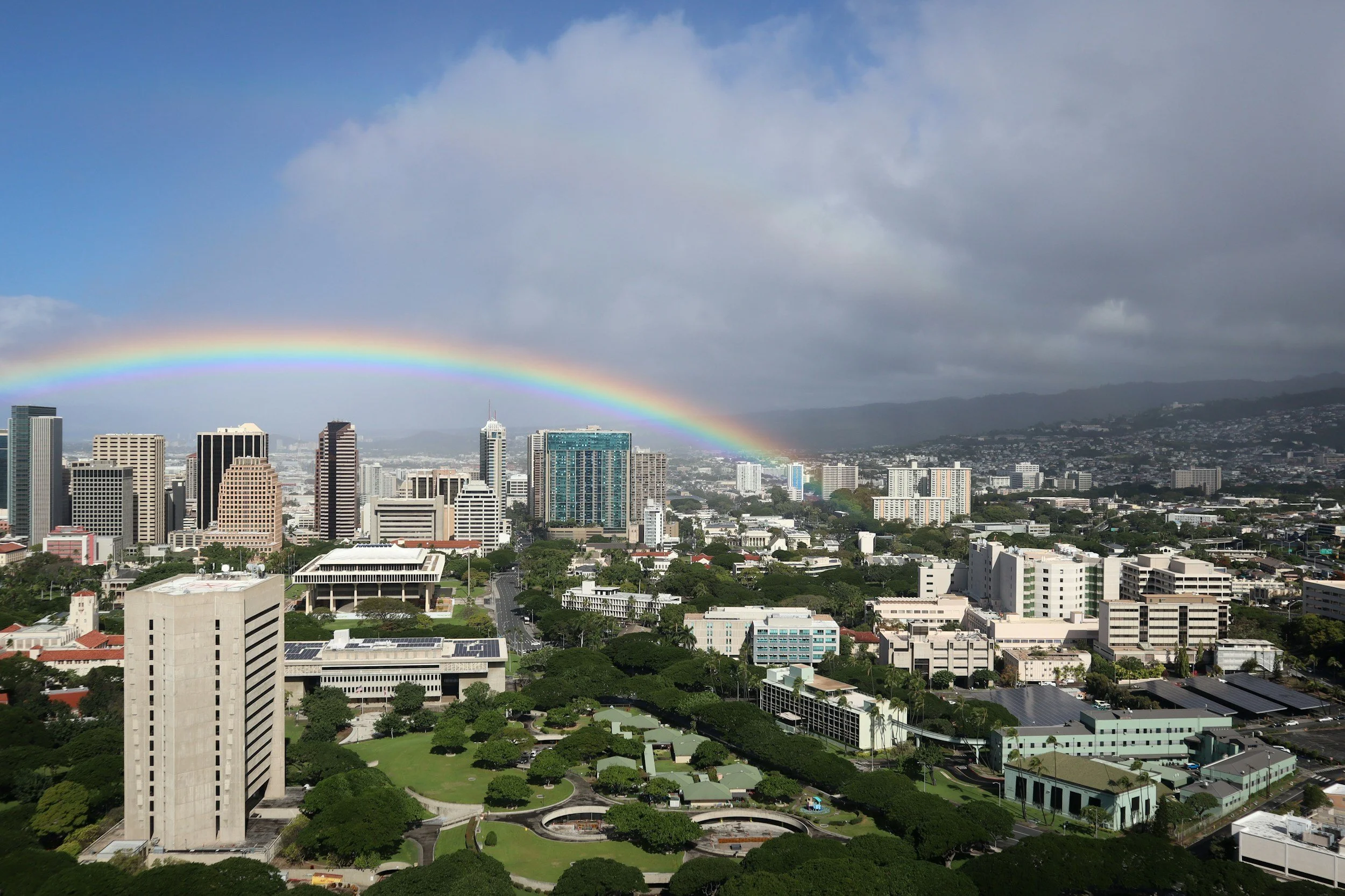
Hawaii's rebate programs cover up to 45% of costs for multi-user stations, targeting island-based retail, offices, and multi-unit properties.
Hawaii Incentives, Grants, Tax Credits, and Rebate Programs
-
Hawaii Energy Electric Vehicle Charging Station Rebate
Hawai'i Energy, is providing up to $4,500 for each newly installed dual-port Level 2 EV networked charging station at eligible workplaces and multi-unit dwellings and up to $35,000 per networked DC Fast Charging stations. The program also provides rebates on retrofitted stations up to $3,000 per networked Level 2 dual port stations and up to $28,000 per networked DC Fast Charging stations. Applications are still being accepted and waitlisted for funding later in the year (anticipated October 2025).
-
Kaua'i Island Coop: EV Charger Rebate
Kauai Island Utility Cooperative (KIUC) offers commercial customers the option to receive a rebate for any new or replaced Level 2 EV charger. Customers may receive up to $10,000 per charger for new installations or up to $3,500 per charger for replacement of existing or broken equipment. KIUC customers may also apply for Hawaii Energy's Level 2 rebate.
-
Kauai Electric Residential EV Charger Rebate
Residential customers purchasing more than 300 kWh from Kaua'i Island Utility Cooperative may be eligible for a $500 rebate for new or retrofit installations. Customers may only claim one rebate per service address.
-
Public Electric Vehicle Charging
The Washington DC Department of Energy and Environment (The Department) is currently accepting applications from nonprofit organizations, universities/educational institutions, and private enterprises for public Level 2 charging at or near District Government-owned sites through their Public Electric Vehicle Charging program. The Department’s grant will support one or more grantees to plan, purchase, install, own, operate, and maintain publicly accessible Level 2 EV charging infrastructure. $609,500 in funding is available and applicants may qualify for up to 80-100% in total eligible costs depending on site location. This is a competitive solicitation.
-
Port Infrastructure Development Program (PIDP)
The US Department of Transportation's Maritime Administration (MARAD) is offering $500M for state and local governments, public agencies and authorities, special purpose districts, and tribes to construct port infrastructure improvements and purchase and install L2 and DC fast chargers at ports through its Port Infrastructure Development Program (PIDP). MARAD will provide reimbursement of up to 80% of eligible project costs, or potentially more, depending on project type.
-
Residential 30C Alternative Fuel Infrastructure Tax Credit
The Alternative Fuel Vehicle Refueling Property Tax Credit, commonly referred to as the “30C tax credit,” gives qualifying individuals that install electric vehicle (EV) recharging property located within an eligible census tract a tax credit equal to 30% of the cost with a maximum amount of $1,000 per EV charging port. Evergreen is providing information on this tax credit only and is not the issuer of this tax credit. Additionally, Evergreen is not responsible for any issues that may result from your tax credit, including but not limited to: invalid tax credit submission, lengthy processing times or delays in processing or receiving your tax credit, or any other issues pertaining to your tax credit. The 30C tax credit is currently scheduled to expire for property placed in service after June 30, 2026.
-
30C Alternative Fuel Infrastructure Tax Credit
The Alternative Fuel Vehicle Refueling Property Tax Credit, commonly referred to as the “30C tax credit,” gives qualifying businesses that install electric vehicle (EV) recharging property located within an eligible census tract a tax credit of up to $100,000 per EV charging port. The credit, subject to depreciation, equals 6% of the total qualified costs per port, or 30% for businesses and tax-exempt entities that meet prevailing wage and apprenticeship requirements, with that same $100,000 limit. Evergreen is providing information on this tax credit only and is not the issuer of this tax credit. Additionally, Evergreen is not responsible for any issues that may result from your tax credit, including but not limited to: invalid tax credit submission, lengthy processing times or delays in processing or receiving your tax credit, or any other issues pertaining to your tax credit. The 30C tax credit is currently scheduled to expire for property placed in service after June 30, 2026.
